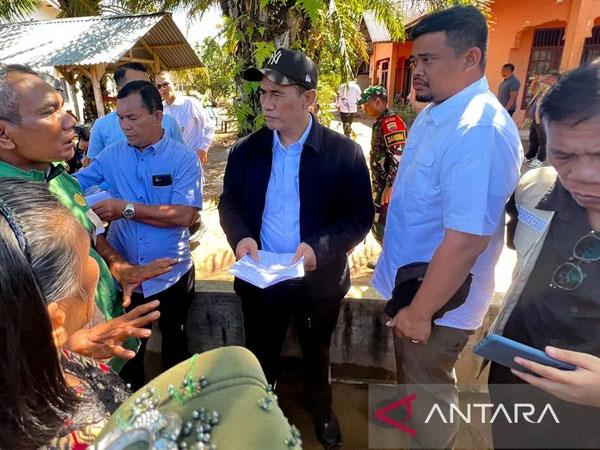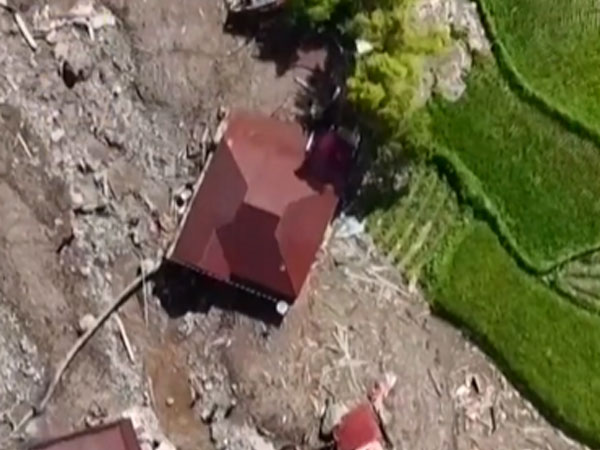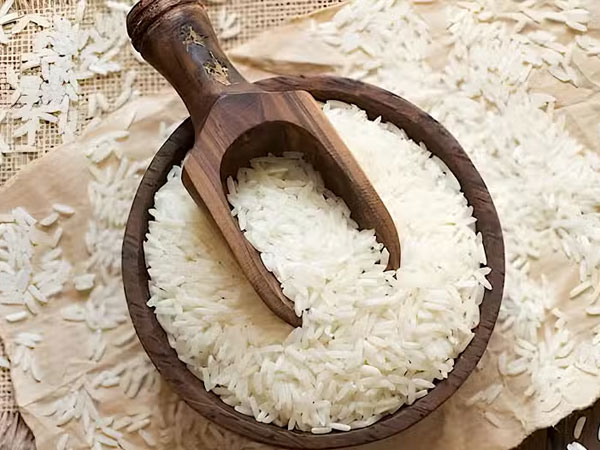MANILA, Philippines — President Ferdinand "Bongbong" Marcos Jr. said his long-standing campaign promise of bringing rice prices down to P20 per kilo will be realized within his term, citing the pilot launch of his program.
Delivering his fourth State of the Nation Address (SONA) on Monday, July 28, Marcos said he has proven that the P20 per kilo rice is possible without sacrificing the earnings of local farmers, promising to expand it further under the Department of Agriculture (DA).
"Sa mga nagtatanong kung nasaan na ang 'bente pesos na bigas': ito ang aking tugon. Napatunayan natin na kaya na natin ang bente pesos na bawat kilo ng bigas, nang hindi malululgi ang mga magsasaka," he said.
(To those who are asking where the 'twenty pesos of rice' is: this is my response. We have proven that we can afford twenty pesos per kilo of rice, without hurting the farmers.)
Over the past months, the program was held in multiple areas across the country, some of which include San Juan, Pangasinan, Cavite, Occidental Mindoro, Cebu, Bacolod, Guimaras, Siquijor and Davao del Sur.
The P20-per-kilo initiative was first launched on May 1 as a pilot program in select areas in Visayas, as the DA determined its provinces among the most in need. The National Food Authority's (NFA) buffer stock is being used to supply the program. Supply of fresh and wet palay is purchased from local farmers.
Marcos once said it is being bought at P18 per kilo for fresh or wet palay, while P19 to P23 per kilo for clean and dry palay.
In his speech, the president added that P13 billion has been allocated to strengthen the DA's programs. One way he envisions this is through the hundreds of Kadiwa stores and centers, including local government units, where the P20 rice program has already been conducted.
"Ilulunsad na natin ito sa buong bansa, sa pamamagitan ng daan-daang Kadiwa stores at centers sa iba't ibang lokal na pamahalaan," he said.
(To those who are asking where the 'twenty pesos of rice' is: this is my response. We have proven that we can afford twenty pesos per kilo of rice, without hurting the farmers.)
Marcos also warned traders from attempting to manipulate the price of rice or deceive local farmers. "Hahabulin namin kayo, dahil ang ginagawa ninyo ay economic sabotage," he said. (We will pursue you because you are committing economic sabotage.)
In 2024, Republic Act 12022, or the Anti-Agricultural Economic Sabotage Act, was enacted into law, repealing the 2016 version. The law aims to protect the country's farmers and fisherfolk by going after smugglers and hoarders.
It imposes a maximum penalty of life imprisonment and a fine of more than the value of the agricultural goods seized.
Some farmer groups, however, criticized Marcos' posturing that rice farmers have earned more in 2024 is only an illusion, as net incomes and the sustainability of rice farming continue to deteriorate.
The Kilusang Magbubukid ng Pilipinas (KMP) reported in early July that production, land rental and interest on loans are costly enough to only bring the profit of a typical Bulacan rice farmer to P4,942 per hectare per season.
Farmgate prices of palay in provinces are also reportedly stagnant at around P16 per kilogram, while the government prioritizes importing millions of metric tons of rice instead.
Marcos also promised in his fourth SONA that more farm-to-market roads will be built, while thousands more hectares of land will be provided with fertilizer and access to water across the country.
According to a July 16 DA report, the program already operates in 162 locations nationwide through the Kadiwa ng Pangulo centers, where distribution is limited to vulnerable groups such as the indigent, senior citizens, persons with disabilities and solo parents.
While not mentioning it in his speech, the Marcos Jr. admin has already been working on plans to sustain the P20-per-kilo rice initiative until 2028 as it launches it nationwide.














© Copyright 2025 The SSResource Media.
All rights reserved.